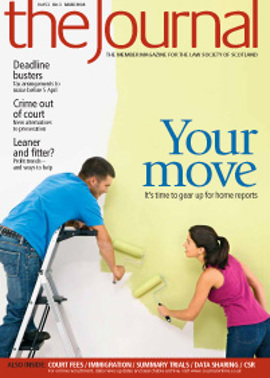Question of technique

Interviewing is one of those skills which, regrettably, far fewer people actually possess than think they do!
Recruitment is possibly the main area in which most of us will have had personal experience of formal interviewing, whether as the interviewer or the interviewee. In such situations it seems relatively obvious to state that the skills of the interviewer are essential in achieving the intended outcome – the selection of the most appropriate candidate – and for that reason it is often considered wholly reasonable to have a personnel or HR specialist present and participating in the process.
In investigative interviewing, the interview will most often be a one-off opportunity to glean as much information as possible from the interviewee. In addition, the outcome may potentially lead to disciplinary or criminal proceedings. By extension, therefore, it would be logical to conclude that when undertaking formal interviews within an investigative process, a more in-depth and specialised skill set would be a prerequisite.
Sadly, in my experience, this is not the case. It is all too common for investigative interviews to be botched, either through haste or ignorance or both, with the result that crucial information is lost or rendered invalid through the manner in which it has been obtained.
With this in mind, it is worth considering a few factors which can increase the chances of the investigative interviewing process being a success.
Planning the interview
Preparation
It is impossible to underestimate the importance of being properly prepared and, in particular, being absolutely sure of your facts. Take time to assess the evidence in advance of the interview and establish what is known and what requires to be clarified.
Questions
Although you will want at least an outline of the questions which you wish to pursue, it is best not to be too prescriptive, as one can never tell the direction an investigative interview will take. Rather than having a strict list of questions, greater flexibility can be achieved through adopting an interview “map” with broad headings to ensure that the interview is kept on track and that nothing is missed.
When questioning an interviewee, a trained investigative interviewer will also consider the use of various techniques such as “levers” – whereby the interviewee is encouraged to conclude that the interviewer may hold more evidence than is perhaps the case. However, there can be a thin line between this and entrapment, so it is always best to leave such techniques to the specialist.
Exhibits
It is useful to produce supporting documents to be used as exhibits during the interview. However, be selective and prioritise these – there is nothing worse than bombarding an interviewee with endless documents which don’t add anything to the investigation.
Location
The choice of venue for the interview is an important factor which is often overlooked. Ideally this should be removed from the interviewee’s normal workplace and certainly out of sight of colleagues. It is also best to avoid the interviewee facing a window or other possible source of distraction.
Room set-up
Traditionally investigative interviews have tended to be face-to-face and confrontational – we have only to think of television police dramas with opposing parties on either side of the interview table. More modern schools of thought suggest that a “side-by-side” approach, with open body language, can better encourage disclosure.
Scribe
Last, but not least, ensure that you are accompanied by a note-taker. Having someone to take notes allows you to concentrate on what is being said and, more importantly, the way in which it is being said (see below). It can also be useful from the point of view of corroboration, particularly if it is not possible or feasible to record the interview.
Conducting the interview
Recording
For a number of reasons I would recommend that investigative interviews are recorded wherever possible. This will generally require the permission of the interviewee but, from personal experience, I have found that this is obtained nine times out of 10 when it is explained that to record is in the best interests of the interviewee in that it can capture the tone and nuance of what is said in a way that a simple written transcript cannot. The example I usually give is of the sarcastic statement. It is also beneficial from the time point of view – an interview which proceeds on the basis of handwritten verbatim notes will take at least three times as long as a recorded interview.
Introduction and caution
There will be a need to position the interview. Explain what it is – for example, a fact find in relation to an investigation. Depending on the circumstances and any applicable disciplinary procedures, you may require to offer that they be accompanied by a colleague, union rep or solicitor. Where there is the faintest chance of self-incrimination you will require to use some form of caution.
Questioning
Begin with “easy” questions to put the interviewee at ease, as far as possible. It is often a good tactic to ask them, for example, to describe their role or duties. This will provide a degree of comfort to the interviewee, but will also serve a secondary purpose in that it allows the interviewer to see the interviewee in a “comfortable” role – this is valuable when comparison is made with subsequent questioning.
As for the questions themselves, it is generally best to use open questions, particularly at the beginning, the ideal being to hone in from general to specific or “closed” questions. The other benefit of open questioning is that it places the onus on the interviewee to provide the narrative and, if that narrative is fabricated, the stress of maintaining a fiction throughout the interview will generally become evident. Never ask a multiple question.
Be prepared to deviate from your question plan where you feel that this is beneficial, but be aware of the possibility that the interviewee may be distracting you away from something they don’t want to discuss.
Silence
It is human nature to try and fill a silence. Resist this temptation, particularly after asking a difficult question – do not immediately follow up with another one. Don’t feel uncomfortable, it will seem twice as long and uncomfortable to the interviewee – use the silence to observe body language.
Use silence also to consider responses and to assess whether what has just been said accords with what was said earlier.
Interruption
Avoid interrupting the interviewee. You may think that they have answered a question adequately and that it is time to move on, but it is exactly at times like this that more may be given away. Wait until the interviewee has finished their response.
Word usage
Be alert to the words the interviewee is using. It may seem clichéd, but I have found that interviewees with something to hide will try to distance themselves from events by, for example, substituting “we” for “I” when narrating events. Watch out for general vagueness and lack of detail – glossing over sections of narrative. Go back and seek the detail you need.
Body language
Folded arms or a generally “closed” demeanour usually demonstrates a defensive attitude, but this can just as easily be down to discomfort at being interviewed as a sign of dishonesty. However, coupled with other factors, it can indicate parts of a narrative about which the interviewee feels uncomfortable and, by extension, highlight factors which require to be more fully explored.
The conclusion
Summarise
It can be useful to do this periodically throughout an interview as you deal with specific areas of the interview map, but it is certainly crucial to recap the information gleaned from the interview at its conclusion to re-confirm what has been established and allow the interviewee to confirm or clarify his/her position.
Closure
Finally, depending on the outcome of the interview, you may require to escort the individual from the premises. Bearing in mind that the interview will have been a traumatic experience, it is always best practice to take reasonable steps to ensure that the individual gets home safely.
David Buchanan-Cook is fraud investigation manager in the forensic department of the Edinburgh office of global accounting firm KPMG. The unit undertakes a wide range of fraud investigations and fraud risk consultancy, and carries out expert witness and regulatory work. David is also a reporter with the Law Society of Scotland’s Client Relations Office and sits on one of the client relations committees.
In this issue
- CGT: Don't lose out on 6 April 2008
- Bank charges and the Unfair Terms Regulations
- One Scotland, many cultures?
- Promoting our ideals
- Out of the wrong pocket
- Market movers
- In and out of court
- Towards an efficient system
- Keeper's rejection of registration applications
- Financial health check
- Before the axe falls
- Summary trials: deciding the facts
- The cost of guardianship
- CSR takes centre stage
- Beyond the principles
- Question of technique
- Time's up
- Persons liable
- Fair competition or own goal?
- Always the Land Court?
- Rewriting the DDA?
- Away win for Webster
- Points of entry
- Website reviews
- Book reviews
- Banding together
- Name, rank and number
- Family law for conveyancers






